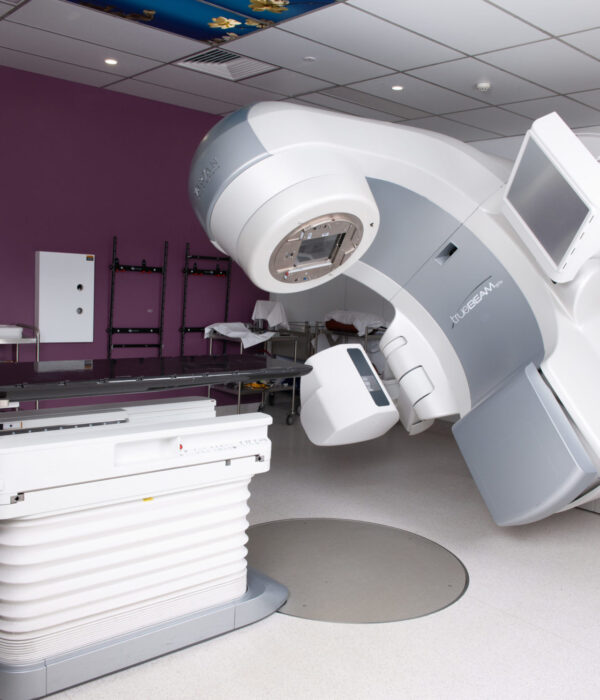TROG Cancer Research is at the forefront of efforts to improve the prognosis for people diagnosed with the leading cause of death from cancer – lung cancer.
While lung cancer is the fifth most common cancer in Australia, it is responsible for one in five cancer deaths. For people diagnosed with the disease, the chance of surviving lung cancer for at least five years is just 19 per cent.
Overall, the chance that a man will develop lung cancer in his lifetime is about 1 in 15; for a woman, the risk is about 1 in 17.
Non-small cell is the most common type of lung cancer, accounting for approximately 85 per cent of cases. Radiation therapy can be used to locally treat advanced non-small cell lung cancer.
TROG Cancer Research trials aim to determine more effective radiation therapy treatment regimes that result in better survival rates. Generous financial support and willing trial participants are the key to achieving this goal.

Our clinical trials typically involve testing new hypothesizes aimed at developing better treatment regimes to help improve survival rates and quality of life for people with lung cancer. View our current trials below to learn more about the lung cancer clinical trials that TROG Cancer Research is currently recruiting participants for.

The TROG 09.02 CHISEL study aimed to investigate if Stereotactic Ablative Body Radiotherapy (SABR) was more effective than standard radiotherapy for patients with non-small cell lung cancer (early-stage lung cancer).
This trial found that for patients with early-stage lung cancer, SABR was more effective in controlling cancer growth, resulting in longer life expectancy and was just as safe as traditional radiotherapy. 89% of cancers were controlled two years after SABR treatment and this compared to 65% for conventional radiotherapy, and there was also a clear benefit in overall survival.
As the SABR technique is much more precise, only the cancer was treated and the surrounding healthy tissue was unaffected. TROG Cancer Research has shown for the first time that this treatment was not only more effective but also more convenient with fewer hospital attendances for the patient.
In investigating the complex relationship between lung tumour volume and survival in patients, TROG 99.05 showed that a larger tumour size should not exclude lung cancer patients from curative (chemo) radiation therapy. Over 500 people with pathologically proven stage I-III non-small cell lung cancer participated in the trial. Volumes of the primary tumour (T) and enlarged nodes (N) were measured according to a standardised protocol.
Larger primary tumour volume had been associated with shorter survival. However, after adjusting for the effects of T and N stage, there was no evidence for an association. There was evidence, however, that larger primary tumour volume was associated with an increased risk of dying, independently of T and N stage, in the first 18 months but not beyond.
One in three Australians will be diagnosed with cancer and donations are vital in ensuring TROG Cancer Research continues to produce and support quality clinical cancer research. Our cancer trials save lives and change lives, but we need your help. All donations of $2.00 and over are fully tax-deductible and you will receive a receipt from TROG Cancer Research.
For over 30 years, Trans-Tasman Radiation Oncology Group has been dedicated to improving the way radiation medicine is delivered to cancer patients with ongoing scientific research, clinical trials, and cutting-edge technology.
Latest News
Keep up to date with TROG news, subscribe to our community newsletter.
ABN: 45 132 672 292